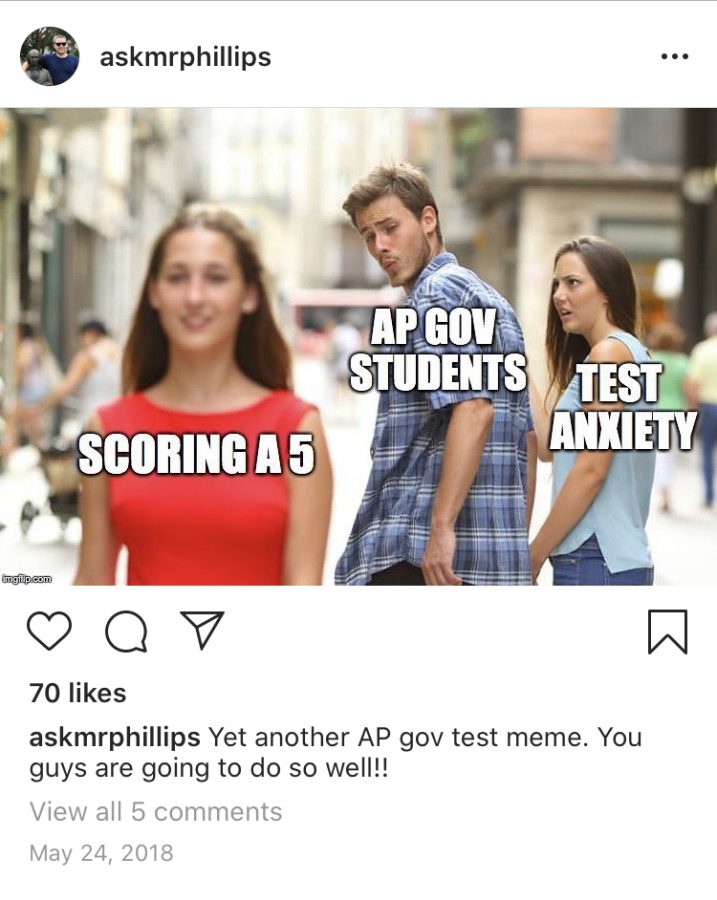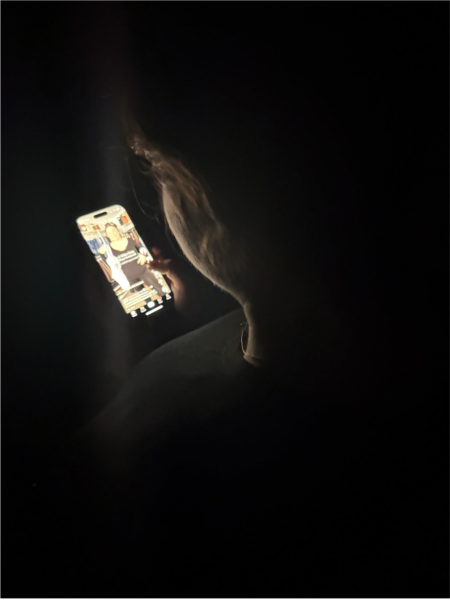Social media’s place in education
Most anyone who has ever pulled out their phone during class to check their Snapchat, Tik Tok or Instagram has done so only to have it taken away by their teacher. What they may not know is that those teachers are likely on social media themselves, possibly posting about that very class.
Although many teachers at the school are against the pressure induced by social media, they believe that it has alternative educational purposes. From uploading photos and videos of student projects and lectures to offering a personal perspective on their day, social media plays a large role in the day to day lives of most faculty. AP Psychology and Government teacher Mr. Kevin Phillips uses his school media account to post about his students, displaying their creativity. He even explained that he uses his school Instagram just for the fun of it, as modern communication has many applications.
“I think [social media] has positive and negative ramifications on society,” Mr. Phillips said. “It’s just a different way for people to communicate. Communication [is] always evolving”
He also believes it can have harmful psychological impacts on users, especially on the minds of students who place too much value on self image. It can cause students to feel as though they must conform to certain standards, putting pressure on their already-hectic lives. It has the potential to cause students to become more vain, or crave fame or recognition. Even adults posting on their Facebook accounts may do so to gain the praise of their followers. However, because it is such a public display, users could be physically endangering themselves.
“There are plenty of unhealthy things students do, in terms of development, in terms of who they hang out with, in terms of relationships,” Mr. Phillips said. “Social media makes it more visible.”
Mr. Phillips is not alone in this line of thinking. Biology teacher Mr. Jason Brodowski has similar views on the topic, addressing both sides of the issue. He believes that, while students can abuse sites like Instagram and Tik Tok, they have little influence over a student’s academic career. Although he does not have a school media account, he also believes that, when used correctly, they can be a fun and stress-free environment to facilitate connections between students.
“I think that, like with any new technology, there’s kind of a growing pain with it,” Mr Brodowski said. “I think there’s a little bit of stress with it, but I think it’s a little bit more over-blown than it actually is.”
Not all educators are convinced the benefits outweigh the disadvantages of these sites. Health and Physical Education (PE) teacher Ms. Terry Wrightson has a less-than-positive outlook on social media. Ms. Wrightson explained that she believes social media is unnecessary and can impact a student’s academic career greatly if used inappropriately.
“Social media can be good, but in most cases I think that it’s all-consuming and that students spend way too much time worrying about what other people think of them,” Ms. Wrightson said.
With the constant distractions social media provides, Ms. Wrightson has noticed an ever-decreasing attention span. She attributes this to an excess of social media usage, and how students measure their self worth with likes and comments. Ms. Wrightson also stated that she does not utilize her school media account because of the aforementioned reasons. To her, social media has become an unhealthy teenage habit that, without management, can become dangerous.
“Usually kids are just way too connected to their phones that they forget there’s an actual life going on,” Ms. Wrightson said.
Most teachers will use their school accounts to post about their classroom’s achievements, expression or for mere amusement. Some teachers may choose to steer clear of this for a variety of reasons. Whatever the circumstances, however a teacher chooses to manage their media accounts, it is a common opinion of the faculty that social media has many pitfalls and merits, but can be a healthy habit so long as it is used responsibly.
“For some that don’t spend an enormous amount of time [on social media], I think that it’s perfectly fine,” Ms. Wrightson said.













